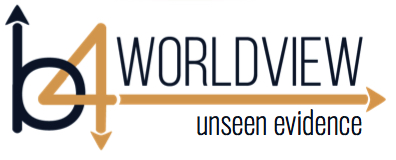
Key Thought for this session:
“If any outcome of life is acceptable to me, then any path will get me there.”
Yet, people who claim relativism and tolerance as a primary virtue will adamantly claim that actions like terrorism and genocide are “Wrong”! But on what basis can they make those claims if they believe truth is relative to each individual’s own interpretation. Those who subscribe to relative truth either do not see this contradiction, or would have to find some irrational way to dismiss it. Either way, relativism cannot ultimately stand its ground.
Another question I would like for you to think about. Do you collect and rely on different principles, ... philosophies, ... or proverbs to live by? Each culture has their own set, but after close scrutiny, often they are the same across cultures, just put in different ways. For example, people all over the world quote Chinese proverbs by Confucius.
We often see that many principles are widely accepted across time and cultures as truths that make life work better. You may be familiar with sayings like “you are what you eat” or “actions speak louder than words.” Here is a very popular one, “you reap what you sow.” A saying or proverb is not true just because someone says it, but people use proverbs to pass down across generations many truths that are independent of what any one person thinks or feels. Principles packaged as a cute saying are universally seen as helpful in producing better outcomes in a situation. They are often called the language of wisdom.
The fact that these sayings and proverbs are so commonly used is seen by some as evidence of a more fixed and foundational truth called “absolute truth” that we can depend on to tell us “which way is up.”
There is another common example that can help us understand why absolute truth should receive serious consideration. Words. Words have definitions, and sometimes a word can mean something slightly different depending on context, but we have dictionaries that tell us that a word means something specific. Yet, if every person can decide independently what a word means instead of accepting and using a true meaning, then we have chaos and it is difficult for people to communicate and work together. It’s like the guy who says to his girlfriend, “I love you” and he means “I like spending time with you”, but she thinks he means “I want to marry you.” She runs off to tell her friends they are getting engaged and suddenly they find themselves frustrated in their relationship. Because unless the word “love” has one accepted meaning for both people, then the relationship will struggle and be less satisfying. It never works well for a word to mean whatever each person feels it should.
And here’s one more example of where being picky about the absolute precise definition of a word, as opposed to being tolerant and inclusive, could be important. When a food advertises itself as being all natural, what does that mean? It sounds good, right? But in actuality, something that exists in nature IS natural. Even a package of animal waste is “all natural.” It occurs naturally. Does that mean it is good for you to eat? Hardly! Or, what about the word “organic”? Cyanide and arsenic are both PURE organic compounds, but both of them will kill you quickly. The point is, that because there is no absolute truth associated with the words “natural” or “organic”, those people who really care about what is in their foods are forced to research the quality of the company. Again, because there is no absolute truth associated with the words, it allows advertisers to TRUTHFULLY make the claim that something is all natural and thereby imply that it is good for you, when in some cases, even though it is ABSOLUTELY all natural, it could, in fact, be harmful to you. So, tying some thoughts we have previously developed together, here is the question: Is the trend toward relativism and tolerance in all things, making our lives better or worse? Agreed... “tolerance” (or “relativism”) has the initial appearance of increasing our options and making us less judgmental, but in the end, doesn’t this tendency move us in the direction of chaos and danger? What do you think?